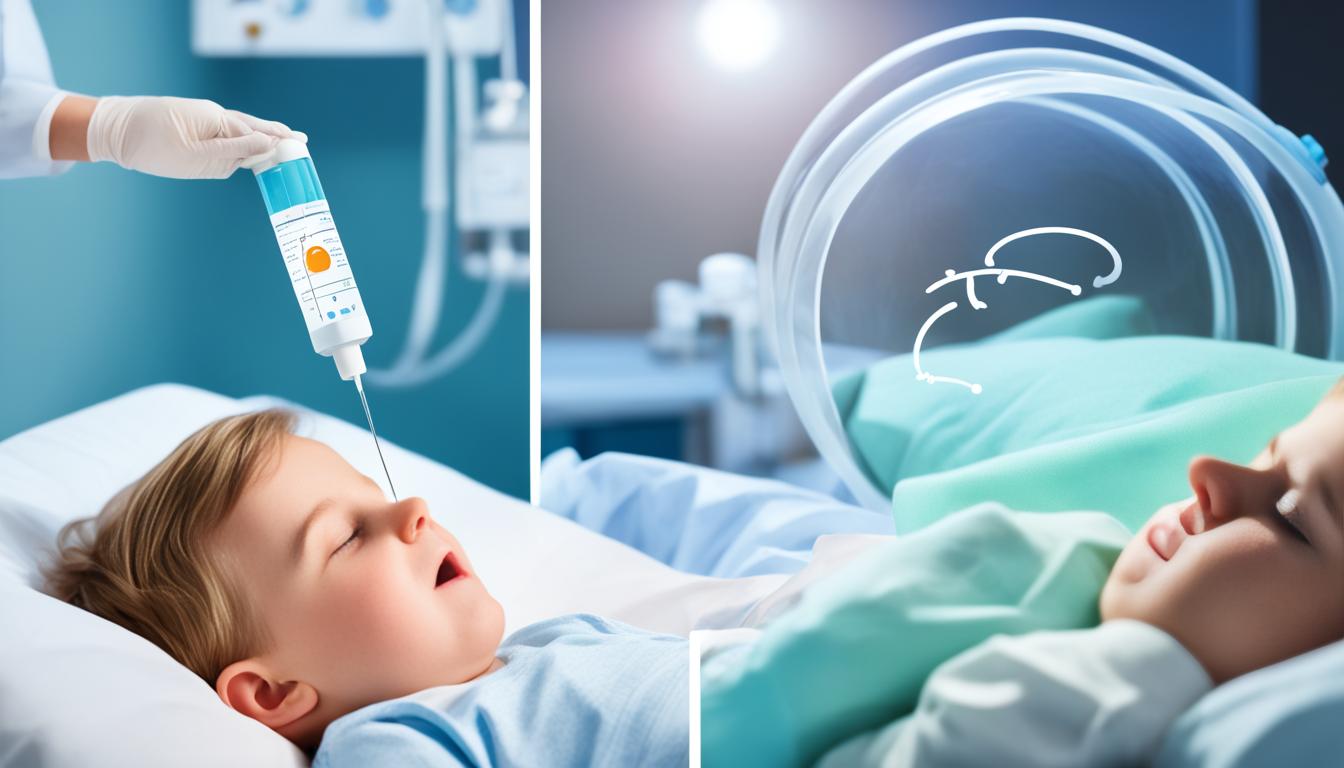Nocturnal enuresis, or bedwetting, is a common issue that affects children and adults. It can seriously impact someone’s day-to-day life and how they feel. This issue can make activities like sleepovers and school trips difficult. It often leads to feelings of guilt and shame.
Studies have found that children who wet the bed might show more stubborn or challenging behavior. While most parents don’t get upset with their child over this issue, some may end up using harsh punishments, even physical abuse.
Bedwetting happens more in boys than in girls and usually, gets better as they get older. The exact cause of bedwetting is unclear. But it seems to involve problems with waking up during the night, making too much urine, and issues with the bladder. Various tools can help, like alarms and medicines, along with changes in behavior.
Stem cell therapy is a promising option for treating bedwetting. It aims to improve the bladder’s function, thus reducing how often bedwetting happens.
Key Takeaways:
- Nocturnal enuresis, or bedwetting, can have a significant impact on behavior and emotional well-being.
- Both children and adults can experience bedwetting, with boys being more affected than girls.
- Bedwetting is thought to be caused by a combination of factors such as sleep arousal difficulties and bladder dysfunction.
- Treatment options for bedwetting include bedwetting alarms, medications, behavioral interventions, and stem cell therapy.
- Stem cell therapy shows promise in improving bladder function and reducing bedwetting episodes.
Epidemiology and Classification of Nocturnal Enuresis
Bedwetting’s common, especially in younger kids. As they get older, the number who wet the bed goes down. By age ten, only 2-3% still have this issue.
Boys face bedwetting more than girls. The why isn’t fully known and needs more study.
Bedwetting is often called different names. Terms like nocturnal enuresis, enuresis, and bedwetting are used. This can confuse parents, caregivers, and doctors.
Classifying bedwetting is key to treating it well. Doctors recognize two main types:
- Diuresis-dependent enuresis: This type is due to too much urine at night and problems waking up. Kids with this may make more urine when they sleep and have trouble waking when their bladder’s full.
- Detrusor-dependent enuresis: Here, an overactive bladder at night and trouble waking help cause bedwetting. This is about the bladder squeezing by itself during sleep and not waking the child to go.
This understanding helps doctors. They can make treatments that match the specific cause. This is much better than a one-size-fits-all approach.
| Age Group | Prevalence of Bedwetting |
|---|---|
| 5-year-olds | 15% to 20% |
| 10-year-olds | 2% to 3% |
Treatment Options for Nocturnal Enuresis
There are many ways to treat nocturnal enuresis, also known as bedwetting. Bedwetting alarms and desmopressin are the first choices. They can make a big difference for many people.
Bedwetting alarms help teach people to wake up before they wet the bed. They go off when you start to pee, training your body to wake up in response. This method often helps reduce bedwetting over the long term.
Desmopressin is a synthetic hormone that treats bedwetting. It cuts down the amount of urine made and makes the bladder hold more. It’s effective for many but not all. Always use it under a doctor’s care.
If the first options don’t work, there are more treatments to try. These include anticholinergic drugs, urotherapy, and managing things like constipation. It can be important to treat the specific underlying causes of bedwetting.
Choosing the best treatment plan means looking at what’s right for the person. What helps one person may not help someone else. A team effort between doctors, the person, and their family is often needed to find the best approach.
New approaches like stem cell therapy are being explored too. They show some early signs of promise but need more research. Still, it’s great to see new ways to potentially help with bedwetting.
Finally, there are many ways to help with bedwetting. By working closely with medical experts and trying various treatments, many people can overcome bedwetting. With the right help, nocturnal enuresis can be effectively managed.

